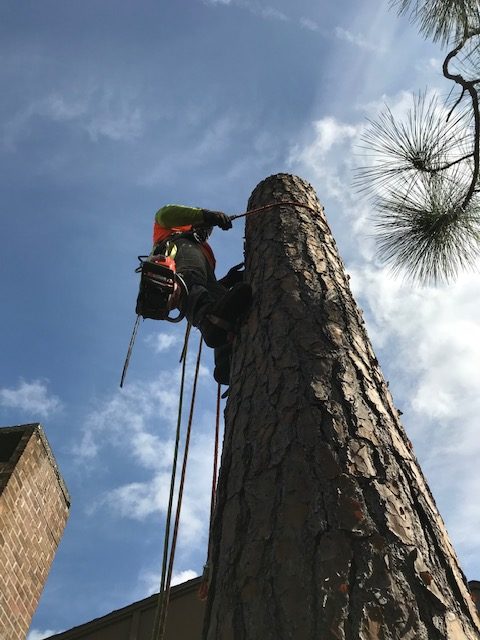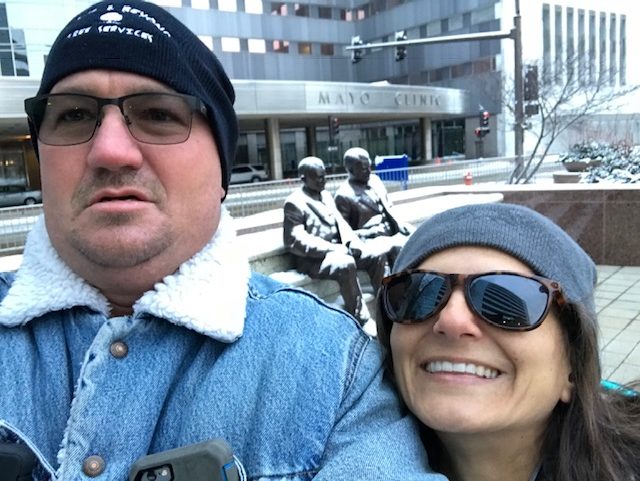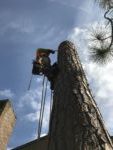Hearing that someone you love has a brain tumor is more terrifying than it even sounds.
My husband Kevin, who was, and still IS, a strong, proud, determined, and successful small business owner, was diagnosed with a rare tumor on Jan. 25, 2018.
In the hours, days, weeks, and months that followed, we learned just how serious, and dangerous his condition was. We’ve had to become experts in the fields of brain tumor research and treatment, the endocrine system, and the healthcare insurance system. We’ve also had to make some really difficult decisions along the way, not only about his medical care, but also about the business and our life.
Kevin’s tumor is typically slow growing, but considered by many doctors to be difficult to treat and manage long term not only because of its location at the base of the brain near areas that are vital to basic human functions and life, but also because of its tendency to grow back, in some cases over and over, despite repeated surgeries and radiation treatment.
 When Kevin was diagnosed, the tumor was 4 cm large, about the size of a walnut. The tumor was pushing so hard in his optic nerve and chasm that it had robbed him of roughly 50 percent of his peripheral vision. On the morning of the surgery, he was dangerously close to entering a comatose state.
When Kevin was diagnosed, the tumor was 4 cm large, about the size of a walnut. The tumor was pushing so hard in his optic nerve and chasm that it had robbed him of roughly 50 percent of his peripheral vision. On the morning of the surgery, he was dangerously close to entering a comatose state.
Kevin endured two surgeries, the first on Feb. 5, 2018 to remove the tumor and a second on Feb. 18 to repair a brain fluid leak at the surgical site that allowed massive, life threatening amounts of air into his brain.
He remained hospitalized for about a month, half of which was in the ICU. He suffered from a host of complications from both the tumor, which caused brain swelling and crushed his pituitary gland, and the surgeries, which left him weak and with searing headaches and dizziness that took nearly two months to subside.
Despite all of that, we now consider ourselves exceedingly lucky. Kevin has received his medical treatment at arguably one of the best medical institutions in the country, if not the world. Immediately after surgery he regained all of his peripheral vision. Despite the pressure the tumor placed on vital parts of his brain, the only permanent damage was to his pituitary gland, and to a far lesser extent his hypothalamus and optic nerve fibers.
 My husband is a tree service owner and professional tree climber. After his first surgery, his doctors told me that Kevin would likely never climb a tree again. Kevin was determined to prove them wrong. After just one month of in home physical therapy, he was ready to go back to work.
My husband is a tree service owner and professional tree climber. After his first surgery, his doctors told me that Kevin would likely never climb a tree again. Kevin was determined to prove them wrong. After just one month of in home physical therapy, he was ready to go back to work.
He had to start slowly, and had to pace himself, but by the end of March we were starting to visit our crew on job sites. And in April I watched with equal amounts of pride and terror as he climbed his first tree post surgery, with the help of the crane.
Our journey during the past year has not been without many twists and turns, highs and lows. By May the headaches started coming back, and in June, after the first post surgery MRI scan, we were devastated to learn that part of the tumor was still there. In July we were told that the tumor was growing again, more quickly than before, and was already dangerous enough that we had to have a consultation with doctors specializing in the fields of neuro-oncology, radiation oncology and neurosurgery.
Conventional treatment for this type of brain tumor, as with many other types of brain tumors, is surgery and radiation, both of which can be very dangerous. There are very few drugs approved by the Federal Drug Administration to treat brain tumors, and, until very recently, the few that did exist have had limited success.
Despite the odds, we ultimately chose the less conventional route of a clinical trial that consists of two oral chemotherapy drugs for a host of reasons, not the least of which was because the early findings from these particular trial drugs have been remarkably successful for treating this type of brain tumor. Since July we’ve had to travel every month half way across the country to where the trial is hosted to receive treatment.
 As of January 2019, we are continuing with the clinical trial and it is working. The tumor has shrunk so significantly, in fact, that our hope is that we will not have to seek any other forms of treatment after the trial is completed.
As of January 2019, we are continuing with the clinical trial and it is working. The tumor has shrunk so significantly, in fact, that our hope is that we will not have to seek any other forms of treatment after the trial is completed.
A major illness, we have found in the past year, has a profound impact on quiet literally everything. Brain tumors have the capacity to fundamentally change who you are as a human being. I’m exceedingly grateful that Kevin is still Kevin, perhaps in spite of the tumor. He is also infinitely stronger because of it. We also both have a new, very deep appreciation for life, and all the obstacles and joys that make up every precious moment of our time here.
So we celebrate, albeit humbly and with a great amount of reflection, that instant on Jan. 25, 2018 that changed our lives forever, and sent us on this journey.


 When Kevin was diagnosed, the tumor was 4 cm large, about the size of a walnut. The tumor was pushing so hard in his optic nerve and chasm that it had robbed him of roughly 50 percent of his peripheral vision. On the morning of the surgery, he was dangerously close to entering a comatose state.
When Kevin was diagnosed, the tumor was 4 cm large, about the size of a walnut. The tumor was pushing so hard in his optic nerve and chasm that it had robbed him of roughly 50 percent of his peripheral vision. On the morning of the surgery, he was dangerously close to entering a comatose state. My husband is a tree service owner and professional tree climber. After his first surgery, his doctors told me that Kevin would likely never climb a tree again. Kevin was determined to prove them wrong. After just one month of in home physical therapy, he was ready to go back to work.
My husband is a tree service owner and professional tree climber. After his first surgery, his doctors told me that Kevin would likely never climb a tree again. Kevin was determined to prove them wrong. After just one month of in home physical therapy, he was ready to go back to work. As of January 2019, we are continuing with the clinical trial and it is working. The tumor has shrunk so significantly, in fact, that our hope is that we will not have to seek any other forms of treatment after the trial is completed.
As of January 2019, we are continuing with the clinical trial and it is working. The tumor has shrunk so significantly, in fact, that our hope is that we will not have to seek any other forms of treatment after the trial is completed.